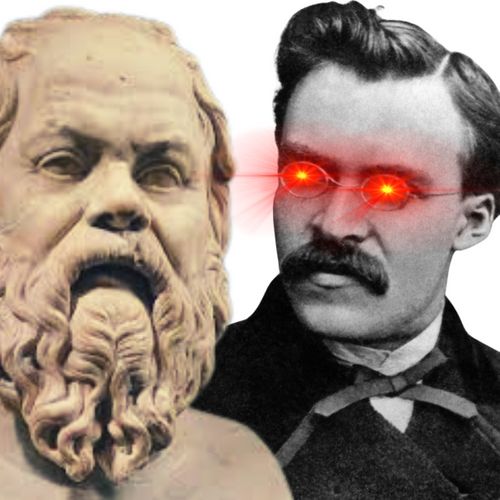Nietzsche Psychoanalyses Socrates
Feb 15, 2023 · 2 mins read
0
Share

Since Socrates is the most influential thinker of all time, Nietzsche believed it pivotal that we think about his last words: "To live — that means to be sick a long time." For Nietzsche, this says more about Socrates than about life. Here is an unconventional take on Socrates:
Save
Share
Nietzsche: "The value of life cannot be estimated." Those alive are incapable of this valuation as they are "party to dispute." They aren't the disinterested judge - in this case, they cannot be. For Nietzsche, the Socratic nihilism was a "sign of decline, of weariness."
Save
Share
A productive man v/s Socrates. Nietzsche: "Whereas in all truly productive men instinct is the strong, affirmative force and reason the dissuader and critic, in the case of Socrates the roles are reversed: instinct is the critic, consciousness the creator. Truly a monstrosity!"
Save
Share
Socrates is the exact opposite of a mystic: "Socrates emerges as the perfect pattern of the non-mystic, in whom the logical side has become, through superfetation, as overdeveloped as has the instinctual side in the mystic." In Socrates, reason elbowed out instinct completely.
Save
Share
Nietzsche: "To have to fight the instincts — that is the formula of decadence: as long as life is ascending, happiness equals instinct." When you are internally torn, when instinct and reason are misaligned, then something has gone wrong. But Socrates celebrated this instability.
Save
Share
Socrates: "The unexamined life is not worth living." He equated "reason, virtue, and happiness" - which for Nietzsche is a "bizarre" equation. Bizarre because reason comes from the newest part of your brain - why put supreme trust in something (relatively) untested?
Save
Share
With his Socratic method, Socrates aimed to make people "furious and helpless at the same time." Nietzsche: "The dialectician leaves it to his opponent to prove that he is no idiot." Listening to Socrates didn't lead to clarity as much as "utter perplexity" for his students.
Save
Share
Nietzsche wrote that Socrates was experiencing "anarchical dissolution" within him, and tried to save himself with "rationality at any price." His life became "cold, cautious, conscious" - a colorless existence that made him actively pursue the death penalty at his trial.
Save
Share
Enjoyed this analysis of one great thinker by another?
Check out my deep dive into Nietzsche's psyche: Why did Nietzsche REALLY go insane?
Save
Share
Follow me for more such writing!
Save
Share
0